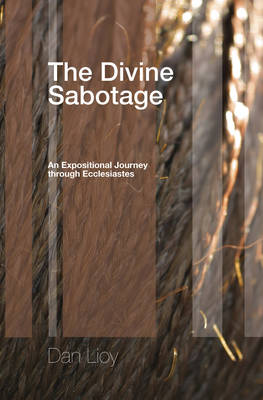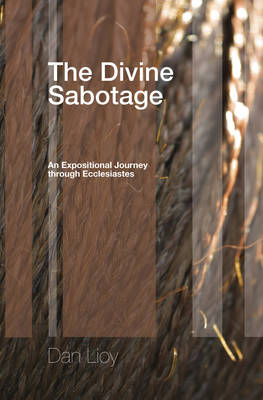
- Retrait gratuit dans votre magasin Club
- 7.000.000 titres dans notre catalogue
- Payer en toute sécurité
- Toujours un magasin près de chez vous
- Retrait gratuit dans votre magasin Club
- 7.000.0000 titres dans notre catalogue
- Payer en toute sécurité
- Toujours un magasin près de chez vous
62,45 €
+ 124 points
Format
Description
The concept of the "divine sabotage" is the starting point for this expositional journey through Ecclesiastes. Dan Lioy notes that on the one hand, God has "set eternity in the human heart" (Eccl 3:11a). Yet on the other hand, "no one can fathom what God has done from beginning to end" (Eccl 3:11b). God has imposed limitations on the human race that undermine human efforts to look beyond the present-especially to understand the past or probe into the future. Expressed differently, because people are creatures of time, their heavenly imposed finitude subverts their ability to fathom the eternal plan of God. The preceding observations help pinpoint why existence often seems vague, incongruous, and antithetical. People are left feeling confused, powerless, and frustrated. And somewhere along the way, they begin to ask what life is really all about. Solomon, who was Israel's wisest and most powerful king, also wrestled with these issues, and he recorded his observations and conclusions in the book of Ecclesiastes. Lioy's objective, balanced, and affirming examination of Solomon's treatise indicates that the fundamental quality of life is defined by revering God and heeding His commandments (Eccl 12:13). He notes that if human existence is likened to a cord made of three strands (an analogy based on Ecclesiastes 4:12), it remains coherent and interconnected when God is at the center of one's inner world, at the core of one's understanding of the external world, and the basis for the significance one derives from life. This volume is appropriate for personal study and is also suitable as a college and seminary textbook.
Spécifications
Parties prenantes
- Auteur(s) :
- Editeur:
Contenu
- Nombre de pages :
- 192
- Langue:
- Anglais
Caractéristiques
- EAN:
- 9781498251570
- Date de parution :
- 18-08-08
- Format:
- Livre relié
- Format numérique:
- Genaaid
- Dimensions :
- 152 mm x 229 mm
- Poids :
- 430 g

Les avis
Nous publions uniquement les avis qui respectent les conditions requises. Consultez nos conditions pour les avis.






